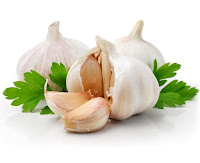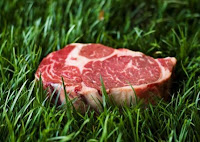I spend every day reading clinical studies on different foods and how they affect our health - or help it. And I totally understand that people are genuinely confused as to what you CAN eat without worrying about the negative effects those foods can have on your weight and health. Heck, I'm confused most of the time too!
We are constantly bombarded, day in and day out by the "health" industry and the food industry telling us that sugar is fine one day and then saying it needs taxing the next (I agree with this last point and one day I might just write a book about that one!), if low fat is heart healthy and then saying that low fat is heart dangerous... or high carb is fine for weight loss... oh no wait a minute... no it isn't! Aren't you confused?
I hope my blog goes a long way to helping you understand what is right for you and what isn't. I do try and base my information on scientific findings, but even those can be misleading. The success of a clinical study depends on 3 factors; the number of participants involved, the duration of the study and the interpretation of the results. Small studies with short durations give quick results that may not extend to a wider population and could change over time - for example. Quite often the press pick up on once phrase and the whole thing goes viral without actually reading the entire study. So most should be considered in their entirety before making conclusions.
However, there are some foods out there that have bad press which needs to be reassessed. I wrote recently about how good avocados are for you and coffee has had a negative image for years. Chocolate has been considered the devil since the beginning of time and wine was usually struck off in any weight loss plan. We have been told for years that eggs raise cholesterol and therefore are a risk to heart health, and nuts are so fattening you shouldn't even be in the same room with them - same goes for pickles!
So, as I am not one for bashing anyone or anything over the head without proof... here's mine...
EGGS

I love eggs. Considered one of the purest forms of protein, also considered to raise cholesterol and
study published in the American Journal of Clinical Nutrition, eggs can help your body better absorb other vegetables' nutrients - more importantly it is the fat in the yolk that creates this better absorption. So, add an egg to your favorite vegetable dishes. make you fat as the yolk is supposedly pure fat. Truth is, the egg as a whole is packed with fat, protein, loads of vitamins and minerales and is very low in carbs. They could also help you to absorb other nutrients more efficiently. According to a new
PICKLES
Fermented foods are fashionable at the moment and for good reason. They are extremely good for your gut health, and if your gut isn't healthy then you really are going to have problems - even in your mental health! The Leiden Institute of Brain and Cognition has carried out an albeit small
study with only 40 participants, which found that the participants who consumed probiotics for four weeks, spent less time dwelling on bad past experiences or negative feelings.
Fermented foods are packed with probiotics which could also help reduce social anxiety.
700 college students were surveyed on their eating and exercise habits and their personalities. The scientists that carried out the survey discovered that those who described themselves as anxious had better social behavior if they ate probiotics.
NUTS
Wonderful and healthful nuts, packed with healthy fats, fiber and vitamins but feared for their high caloric value. However, fear not!
Maastricht University discovered that people who ate about 10g of nuts every day had a 23% reduced risk of dying from heart attacks, diabetes, respiratory failure, and cancer, compared to people who ate less. However, eating more than 10g a day did not increase the protective benefits so there is no need to go crazy and eat huge amounts. Just remember to keep them raw and avoid peanuts!
AVOCADOS
Another one of my favorites! Now to add to all those benefits is the avocado's LDL (bad cholesterol) lowering properties, making it heart healthy - or so new research published in the
Journal of American Heart Association. Another small study and funded by Hass Avocado Board and including only 45 participants so could be considered questionable on all levels... but it does shed light on the positive effect of the healthy fat found in avocados on cholesterol... Seeing as there is no reason NOT to eat avocados, this just adds to the positives.
Professor Paul Spagnuolo from the University of Waterloo has found that a lipid in avocados attacks
leukemia stem cells directly without harming other healthy cells. Obviously this would be a major breakthrough in cancer research but the drug is still a long way from being approved for use in human cancer patients.
CHOCOLATE
The never ending chocolate debate. Dark chocolate is full of antioxidants which can't be bad, right? Just keep it in moderation. Although a study at Columbia University and NYU found that participants who ate a lot of chocolate - 100g of cocoa powder which contains 100mg of flavanols - got
higher scores on memory tests than those who ate a little. This means that chocolate is actually good for your brain. However, to get that much from regular chocolate means you would have to consume 44 pounds a day and I really don't think your waistline would appreciate it even if you were capable.
Chocolate can also be considered good for you heart, or simply not bad for it. A
study in the British Medical Journal states that eating up to 100g of chocolate a day is linked to lowered heart disease and stroke risk. But it could just mean that people with a higher risk of cardiovascular disease eat less chocolate than those who don't.
COFFEE
Can't live without it, but you think you should cut back because of the caffeine? However, one thing all scientists seem to agree on is that
drinking coffee isn't harmful at all. In fact, a review of 40 different on the link between coffee and different kinds of cancer found that coffee consumption is inversely linked to the risk of various
different types of cancer including breast, pancreas, bladder, prostate and throat. The American Heart Association research has shown that higher levels of coffee consumption means a
lower risk of stroke. Also another
study from Kyoto University discovered a reduced risk of death from heart disease in participants who had at least one cup a day.
Another study from the University of Texas shows that a few cups a day (2-3) could help lower the
risk of erectile dysfunction. This, they believe, is due to the fact that caffeine helps relax muscles and arteries, improving blood flow to the area in question.
WINE
Specifically red. Full of an antioxidant called resveratrol, red wine is believed to be heart healthy and maybe even gut healthy due to it's fermentation and now, thanks to a
study in the Journal of Nutritional Biochemistry, it may even improve weight loss too. Red wine in mice has been found to help them metabolize fat and sugar more efficiently - however we will have to wait and see if it has the same results in humans.
I can help you improve your health. If you would like to make an appointment with me either in person or via Skype, just send me an email to lucycarr@socialnutrition.com
 Stay as far away from sugar as possible. The minute we find ourselves lacking energy we tend to stroll to the vending machine and grab a chocolate bar. But sugar just causes a spike in your blood glucose levels, giving you an instant "high", which is lost just as quickly when insulin is released to lower the level of glucose in your blood. So your "high" gets converted into a "low" very quickly, taking you right back to your lack of energy and your need for another "high".
Stay as far away from sugar as possible. The minute we find ourselves lacking energy we tend to stroll to the vending machine and grab a chocolate bar. But sugar just causes a spike in your blood glucose levels, giving you an instant "high", which is lost just as quickly when insulin is released to lower the level of glucose in your blood. So your "high" gets converted into a "low" very quickly, taking you right back to your lack of energy and your need for another "high".















